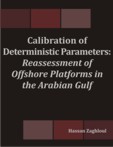Add abstract
Want to add your dissertation abstract to this database? It only takes a minute!
Search abstract
Search for abstracts by subject, author or institution
Want to add your dissertation abstract to this database? It only takes a minute!
Search for abstracts by subject, author or institution
Hybrid Environmental Control System Integrated Modeling Trade Study Analysis for Commercial Aviation
by Javier A Parrilla
| Institution: | University of Cincinnati |
|---|---|
| Department: | Engineering and Applied Science: Aerospace Engineering |
| Degree: | PhD |
| Year: | 2014 |
| Keywords: | Aerospace Materials; Thermal Management System; Air Cycle System; Bleed System; Environmental Control System; Integrated System Modeling; Commercial Air Conditioning Packs |
| Posted: | |
| Record ID: | 2056269 |
| Full text PDF: | http://rave.ohiolink.edu/etdc/view?acc_num=ucin1396454368 |
Current industry trends demonstrate aircraft electrification will be part of future platforms in order to achieve higher levels of efficiency in various vehicle level sub-systems. However electrification requires a substantial change in aircraft design that is not suitable for re-winged or re-engined applications as some aircraft manufacturers are opting for today. Thermal limits arise as engine cores progressively get smaller and hotter to improve overall engine efficiency[8], while legacy systems still demand a substantial amount of pneumatic, hydraulic and electric power extraction. The environmental control system (ECS) provides pressurization, ventilation and air conditioning in commercial aircraft[7], making it the main heat sink for all aircraft loads with exception of the engine. To mitigate the architecture thermal limits in an efficient manner, the form in which the ECS interacts with the engine will have to be enhanced as to reduce the overall energy consumed and achieve an energy optimized solution. This study examines a tradeoff analysis of an electric ECS by use of a fully integrated Numerical Propulsion Simulation System (NPSS) model that is capable of studying the interaction between the ECS and the engine cycle deck. It was found that a peak solution lays in a hybrid ECS where it utilizes the correct balance between a traditional pneumatic and a fully electric system. This intermediate architecture offers a substantial improvement in aircraft fuel consumptions due to a reduced amount of waste heat and customer bleed in exchange for partial electrification of the air-conditions pack which is a viable option for re-winged applications.
Want to add your dissertation abstract to this database? It only takes a minute!
Search for abstracts by subject, author or institution


|
Predicting the Admission Decision of a Participant...
|

|
Development of New Models Using Machine Learning M...
|

|
The Adaptation Process of a Resettled Community to...
A Study of the Nubian Experience in Egypt
|

|
Development of an Artificial Intelligence System f...
|

|
Theoretical and Experimental Analysis of Dissipati...
|

|
Optical Fiber Sensors for Residential Environments
|

|
Calibration of Deterministic Parameters
Reassessment of Offshore Platforms in the Arabian ...
|

|
How Passion Relates to Performance
A Study of Consultant Civil Engineers
|